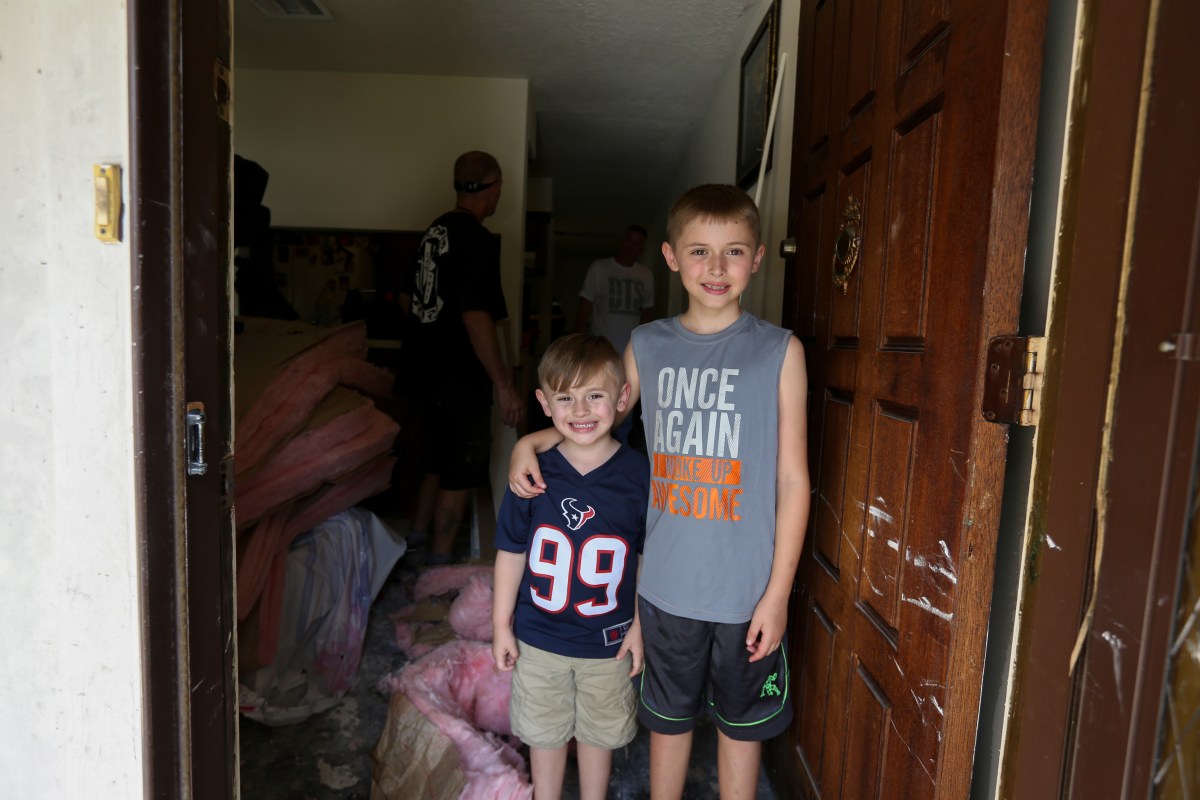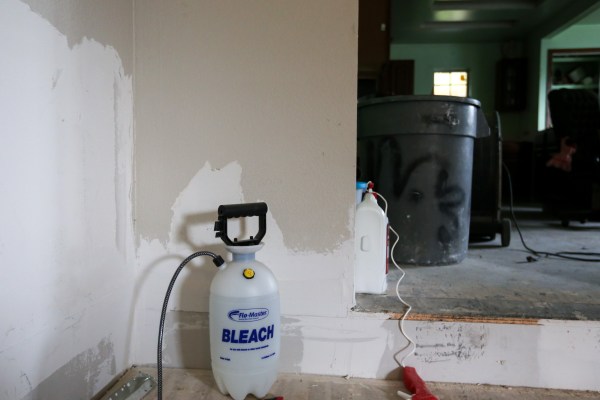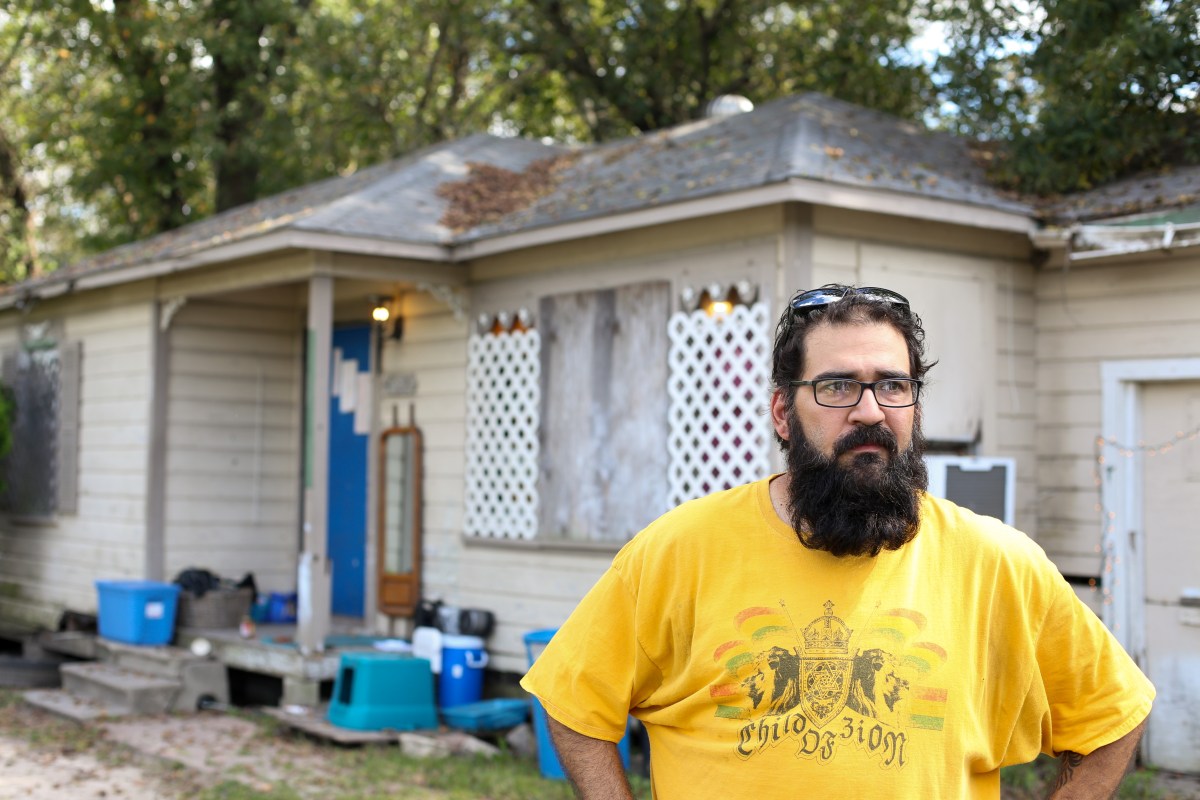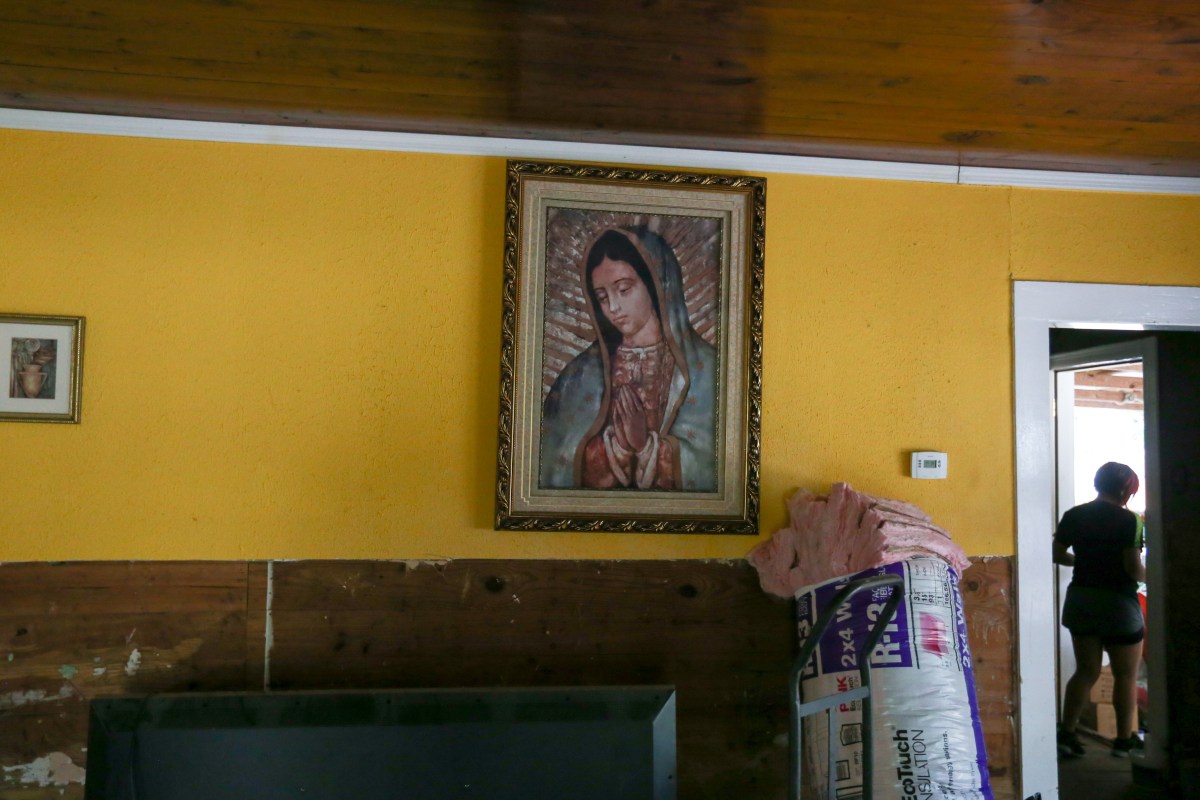It was only seven weeks ago that Hurricane Harvey devastated the Texas coast and areas in and around Houston.
And it feels like the world has been burning ever since—we’ve seen Irma and Maria, earthquakes in Mexico, the Las Vegas shooting, threats of nuclear war, deadly fires in California, and at least a half dozen political scandals.
But while the rest of us have been swept along with the news cycle, families in Texas are still stuck in the tragedy of seven weeks ago—dealing with the aftermath of a hurricane and 1,000- year flood.
They haven’t moved on… because they can’t.
Their houses are still ripped apart, drying out, or growing mold. They’re still living in FEMA-funded motel rooms and shelters—or they’re couch-surfing. Still wondering how they’re going to afford to put their homes back together. Still wading through stacks of paperwork, trying to figure out if they even can rebuild or if their home will be condemned. They’re still worrying about the all-too-real possibility of becoming homeless—and what that will mean for their kids.

It’s been nonstop stress for 48 days straight.
But you know what’s keeping them going? You.
“I know that God is real because you showed up to help us. I think you must’ve come from heaven.”
“You keep coming back to sit with me and listen—I know you care about me. This is the best way you can help me.”
“It makes me feel so good—like I can keep going, because you are helping me.”
These are some of the things we heard this week from families you’re helping in Houston.

You’re helping to provide sheetrock, dehumidifiers, tools, mold treatment, and building supplies for them. You’re helping them with the cost of new living arrangements. You’re providing friendship, partnership, and the knowledge that they are not alone.
And you’re helping them navigate the complex legal systems that could largely dictate their future.
See… recovering from disaster is not so simple. It’s not just tearing out wet sheetrock, spraying for mold, and rebuilding. It’s also FEMA stipulations, city permits, lawsuits, and floodplains. It’s government buyout options, code regulations, and program qualifications. It’s orange fliers posted on your door with complex legal jargon telling you that you can’t rebuild because your house has been condemned. But it’s only in English. And you only speak Spanish.

It’s being told to visit a website, but you don’t have access to a computer or the internet. It’s being sent three different forms telling you three different things and none of them make any sense unless you’re a lawyer. But you can’t afford a lawyer.
It’s the knowledge that fixing your house is urgent. But so is working. Because if you lose your job, you’re really screwed. So you work all day, and then you come home and work on your house all night—but at this rate, it’ll take you months to rebuild. And with every passing day, your home is becoming more and more toxic.
It’s being so stressed out by all of these things that you have no time for your family or yourself. So your marriage starts falling apart and your kids start acting out. And the stress of it all is so overwhelming that you cry or feel angry all the time. Or both.

We saw all of these things in Houston this week.
That’s why nearly every person we spoke to wept when they told us how grateful they are that you keep showing up. Because the crisis didn’t end when the flood waters receded. And these families didn’t move on with the news cycle.
Thank you for loving them so well. Thank you for being first in and last to leave.
Stay tuned for more updates on how you’re responding in Houston.


